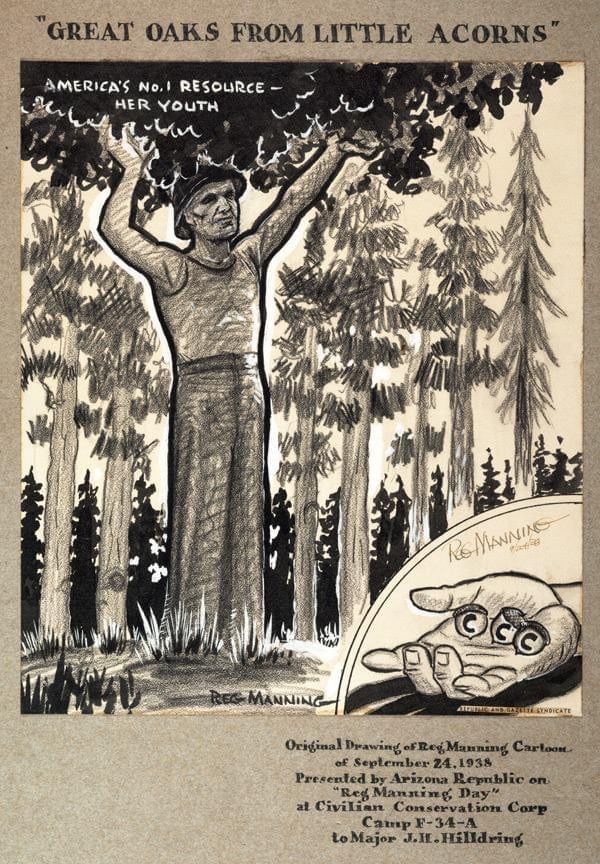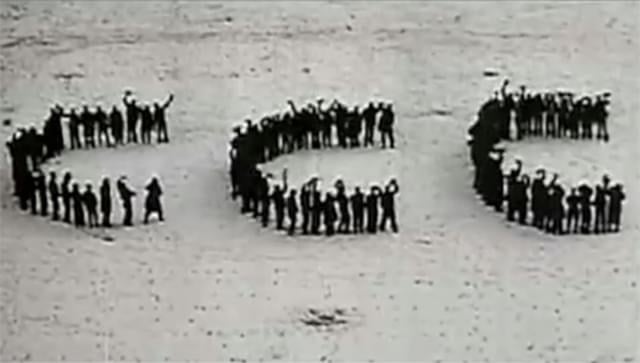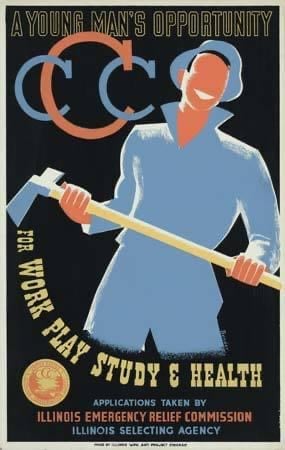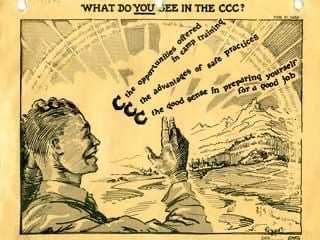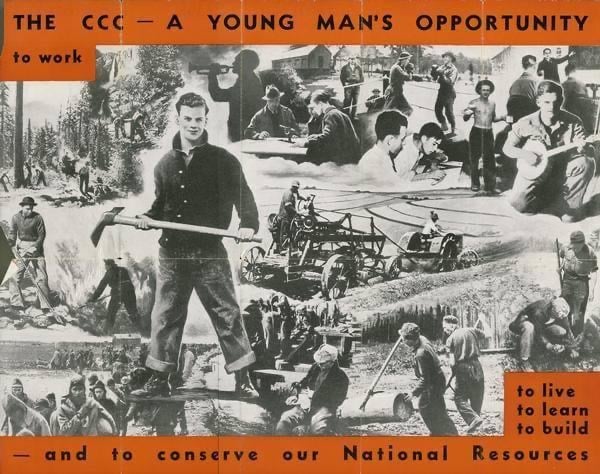There are some existing "programs" that are inherently systemic in their design. The CCC (a.k.a, "service corps," "conservation corps," or just "corps program") is one of them.
Below is a repository of useful information on Service Corps. Dr. Derek Cabrera was instrumental in founding the Montana Conservation Corps (MCC) and has been involved in many Corps initiatives. Of the "Corps Concept" Cabrera explains:
"the Corps Concept is a win-win-win concept. Programmatically, it is extremely simple, but its emergent properties in terms of collective impact are extremely diverse. It remains one of the best programatic ideas ever had by a human mind."
- Will LaRose (2020). LaRose: It’s Time For a Massachusetts Service Corps. GUEST EDITORIAL. The Montague Reporter.
- Brown, S., Kasonde, V., Koo Wilkens, P., LaRose, W., Mukhamejanova, M., Smith, S., Tan, D., Terragnoli, A., Cabrera, D., and Cabrera, L. (2020.) “Sustainability in the Galápagos Islands: A Systems Thinking Approach Reveals the Need for Environmental and Social Balance.” Cornell Institute for Public Affairs Systems Thinking, Modeling and Leadership (STML) Certificate.
- Adam Nicholson (2021). Reimagining Service and the Fight Against Climate Change: A VMCL analysis on the creation of a new Civilian Conservation Corps and how it will benefit our nation’s youth and the environment.Cornell University.
Some Resources on CCC in the US
- A brief history of the Civilian Conservation Corps (CCC) https://www.history.com/topics/great-depression/civilian-conservation-corpshttps://www.history.com/topics/great-depression/civilian-conservation-corps
- Wikipedia Page about the CCCs https://en.wikipedia.org/wiki/Civilian_Conservation_Corpshttps://en.wikipedia.org/wiki/Civilian_Conservation_Corps
- One source of modern day funding for US Conservation Corps https://www.nationalservice.gov/programs/americorps
- A Conservation Corps in Oregon State that Cabrera worked for as a Crewleader for years https://www.nwyouthcorps.org/m/
- The Conservation Corps concept Cabrera helped to start in Montana State https://mtcorps.org/
- An example of how different conservation corps concept can manifest. City Year is a popular “urban Youth Corps” https://www.cityyear.org/
Basic structure and Corps Concept:
- A Conservation Corps = Fee-for-service project (from agency, municipality, avoiding taking projects away from labor, etc) + Crewleader (Lead and Assistant) + 8-10 Youth Crewmembers
- The size of the Corps is simply a function of the number of projects that can be gotten and the number of crews fielded.
- Crews camp together with tools and vehicle + trailer.
- Crewmembers do not receive a “wage,” but instead receive a “living stipend” + an “educational stipend” for past or future college. Because most of the crewmember’s experience is camping roadside or onsite, their living wage can be minimal. Depending on projects, community-based crews could also reside at their own homes and camp onsite for some but not all of their work projects.
- Relatively easy to start. All you need is a project, a crew, and transportation.
- Heavy focus on experiential trainings for Crewleaders and Crewmembers
- Curriculum planning for skills development (Badges earned for English, Environmental and Social development, First Aid, etc).
- Esprit de Corps (literally, the “Spirit of the Corps”) is essentially important. Uniforms, badges, patches, trainings, culture, and marketing all builds a sense of pride, fellowship, self-esteem and connection to community and environment.
- Organizationally, it is important to maintain low overhead, where fee-for-service projects and some local-global fundraising supports overhead.
- Conservation Corps are surprisingly non-partisan and non-political. For various reasons, people from across the political spectrum will be supportive of the “Corps Concept” often for similar or different reasons (e.g., community development, work skills development, youth development, environmentalism, social good, youth development, personal responsibility, etc.)
Attached is an .xcel file that shows the states that have legislation around conservation corps and those that do not, and below is a series of links to said legislation for certain states.
Of particular interest is Vermont, California, New York, and Minnesota.
